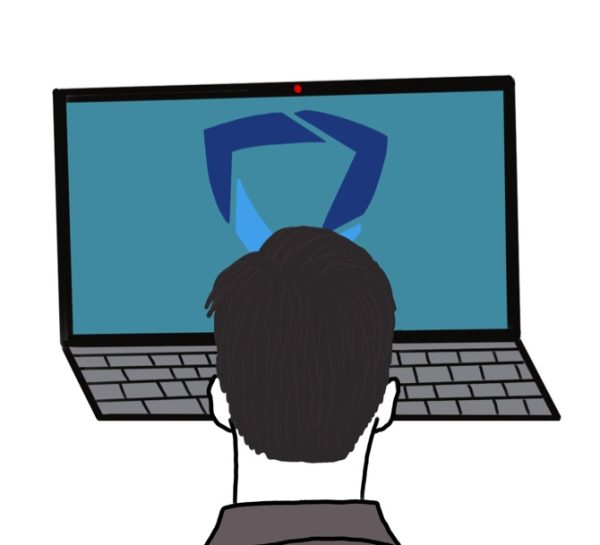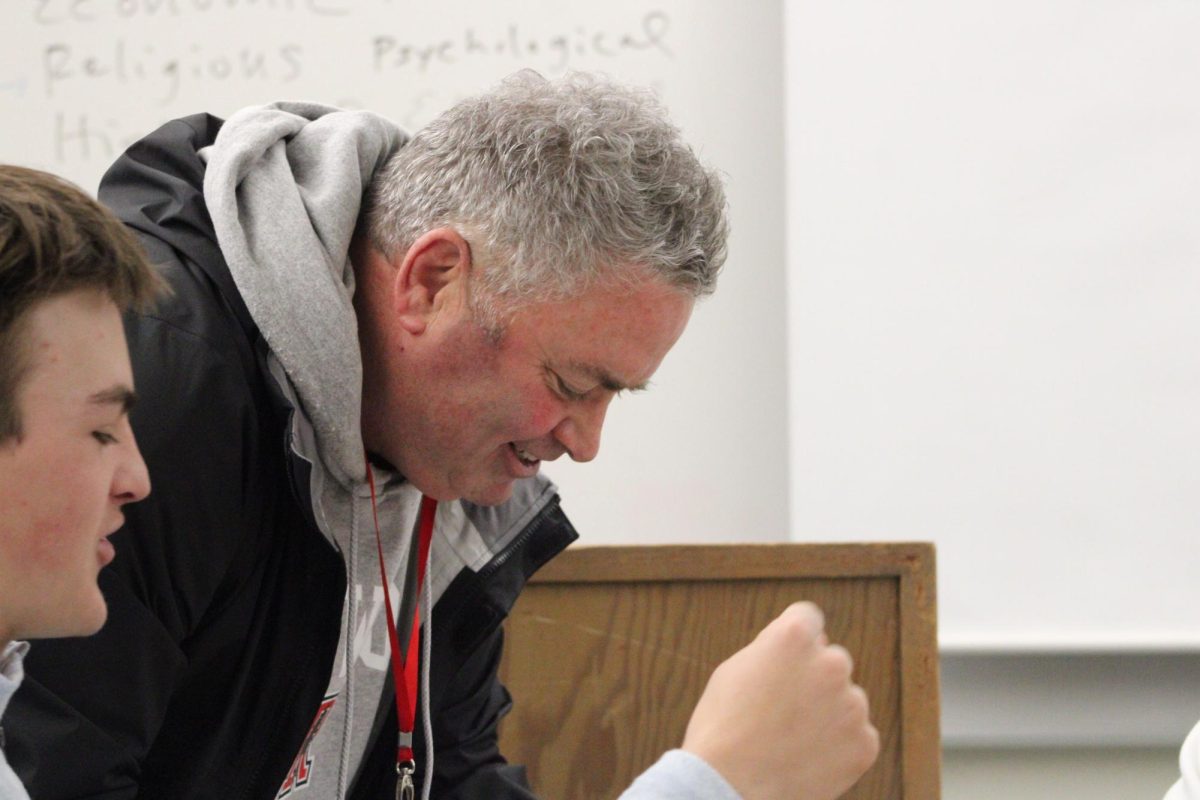As smoke, ash and other pollutants from still-raging Wine Country fires reach Marin County, residents are facing unprecedented levels of air pollution. Poor air quality has forced the Tam Union High School District to close schools on Oct. 13, and sports practices and games have also been cancelled for most of last week.

Though contaminated air is unpleasant for all, it is a serious health hazard only to those with significant underlying cardiac and respiratory diseases, according to Dr. Christopher Tyler, who works in Critical Care and Pulmonary Medicine at Kaiser San Francisco.
“Those who have underlying respiratory disease or diseases that are sensitive to the irritation of the airways, such as asthma, are much more prone to an exacerbation of those conditions when exposed to this sort of nonspecific irritant of smoke in the air,” Tyler said.
For people with underlying respiratory illnesses, pollutants in the air aggravate the mucosal membrane of the upper and lower airways, causing a worsening of symptoms. Especially for asthmatics, smoke is an irritant that triggers an inflammatory response in the airways, and can cause acute bronchospasm (a spasming of the airways that makes it difficult to move air in and out). This causes immediate breathing difficulties, according to Tyler.
As an asthmatic, senior Cale Tippett is facing breathing difficulties like these due to the smoke.
“I’ve had to leave class early to go to my car so I can use my inhaler and sometimes I’ve had to leave class so I could just be up and walk around and really try and catch my breath,” Tippett said. “It’s definitely been hard to breathe.”
Tippett, who is a water polo player, hopes that the conditions will be clear so that he can resume practice without facing issues.
“Water polo season is almost to a close and we have had to cancel this week and those games can’t be made up,” Tippett said. “[I’m] hoping that the air quality stays clean so we can continue with our season and we don’t have to get rid of any more games.”

People who do not have respiratory illnesses are unlikely to experience long-term ill effects as a result of the smoke, according to Tyler.
“The remainder of us, at least those of us who are exposed to low level irritants, are going to find it a nuisance. It might cause us to increase our cough or sneezing or itchy eyes but most of us will tolerate this with relatively few acute or long-lasting effects,” Tyler said.
However, people who are at the site of the fires are at far greater risk than residents in Marin because they are exposed to higher concentrations of pollutants.
“[People who are closer] are exposed to pollutants in the immediate vicinity of a fire where there are very high concentrations of not only nonspecific irritants like soot, but direct toxins from flammable materials like plastics and petroleum products and other things that may be combusted in a fire,” Tyler said. “Acute massive smoke inhalation can cause severe respiratory failure and put you on life support in a hospital.”
According to Laine Hendricks, Public Relations Officer at the San Rafael Civic Center, many evacuees there are concerned about returning to dangerous air conditions.
“There are a number of families who are scared to go back because of heavy soot and are not sure if it is safe because of asthma concerns and that sort of things,” Hendricks said. “[They] are wanting to know from health officials that it is safe to go back.”
For those in Marin, Tyler recommends wearing a well-fitting face mask when outdoors under bad air conditions.
“Most people don’t wear face masks correctly. In order for a face mask to filter the air that you’re breathing, it has to be fairly tightly fit around your nose and your mouth so that all of the air is coming through the filter as opposed to around the outsides of the filter,” Tyler said.
Tyler also advised against exercising outdoors in the presence of smoke, which supports the school’s decision to cancel sports practices.
“Your requirement to breathe air in and out of your lungs is directly proportional to your metabolic rate. So, if you quadruple your metabolic rate while running track, you’re going to have to quadruple the amount of air that you breathe into your lungs, so that’s more cumulative exposure to your lungs,” Tyler said.
However, according to Tyler, the best preventative tip is to take care of one’s lungs in general to prevent developing respiratory illnesses. That way, they aren’t severely affected by situations like these if they should occur again in the future.
“One of the things that at least appears remarkable in my own personal experience since the last several days is that we have not had a spike in hospitalizations due to respiratory ailments,” Tyler said. “That probably means that as a community, we are doing a much better job of taking care of our lungs.”













